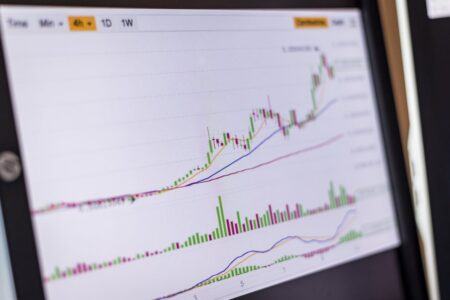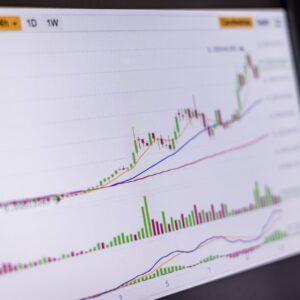In a world thirsty for innovative solutions to pressing global issues, Cardano (ADA) is stepping up to quench that thirst.
In a recent interview with The Fintech Times, Frederik Gregaard, CEO of the Cardano Foundation, lays bare the Foundation’s visions, ambitions, and real-life impact of Cardano’s blockchain technology.
Gregaard, prior to his tenure at Cardano, boasts an impressive history of work within the fintech sector, including building the worldwide Blockchain Practice at PWC and introducing the first multi-asset robo advisor in the Swiss market. Now, as the CEO of the Cardano Foundation, he brings his expertise and passion for democratizing access to capital markets and advancing blockchain technology to the fore.
Under Gregaard’s leadership, the Cardano Foundation has been nothing short of active. He highlighted the hosting of the 2022 Cardano Summit and the launch of the Second Annual Global Impact Challenge with Switzerland for UNHCR as key events over the past year. The Cardano community, he insists, is one of the most vibrant and passionate in the sector.
A significant area of interest for the Foundation is Environmental, Social, and Governance (ESG) principles. Gregaard emphasized the low energy cost of Cardano’s proof-of-stake protocol, Ouroboros, which improves upon the security guarantees of proof-of-work protocols. He also discussed the Foundation’s partnership with Veritree. This partnership led to the planting of 1 million trees with each tree linked to a token recording its ownership and location.
The CEO went on to expound on some of Cardano’s real-life use cases. One such example is a solution implemented to verify the quality and authenticity of Georgian wine. In collaboration with Georgia’s National Wine Agency, the Bolnisi Winemakers Association, and Scantrust, the Foundation supported individual wineries in verifying their wine through a cost-effective, scalable platform for winemakers.
In another venture, the Foundation partnered with Switzerland for the United Nations High Commissioner for Refugees (UNHCR). The partnership led to the launch of a charity stake pool, with a stake delegation by the Cardano Foundation of 3.5 million ada, the native token of the Cardano blockchain. This kind of forward-thinking, solutions-driven work represents the potential of blockchain technology when harnessed successfully.
When asked about the challenges in scaling a cryptocurrency, Gregaard said blockchain scalability is mostly a question of trade-offs between decentralization and scalability. Many projects turn to layer two solutions that sit atop an existing system for scaling, but these also have their challenges.
The recently released Cardano Foundation Annual Report, according to Gregaard, indicates the impact the Foundation is having on the blockchain ecosystem and its plans for the future. It details the Foundation’s achievements in 2022 and highlights its mission to facilitate the worldwide advancement of the public digital infrastructure Cardano.
In closing, Gregaard expressed pride in leading an organization striving to strengthen financial and social systems and empower everyday users to leverage the Cardano protocol to solve pressing world problems. His final thoughts were optimism, excitement, commitment to the Cardano community, and continual improvement in their blockchain technology.








